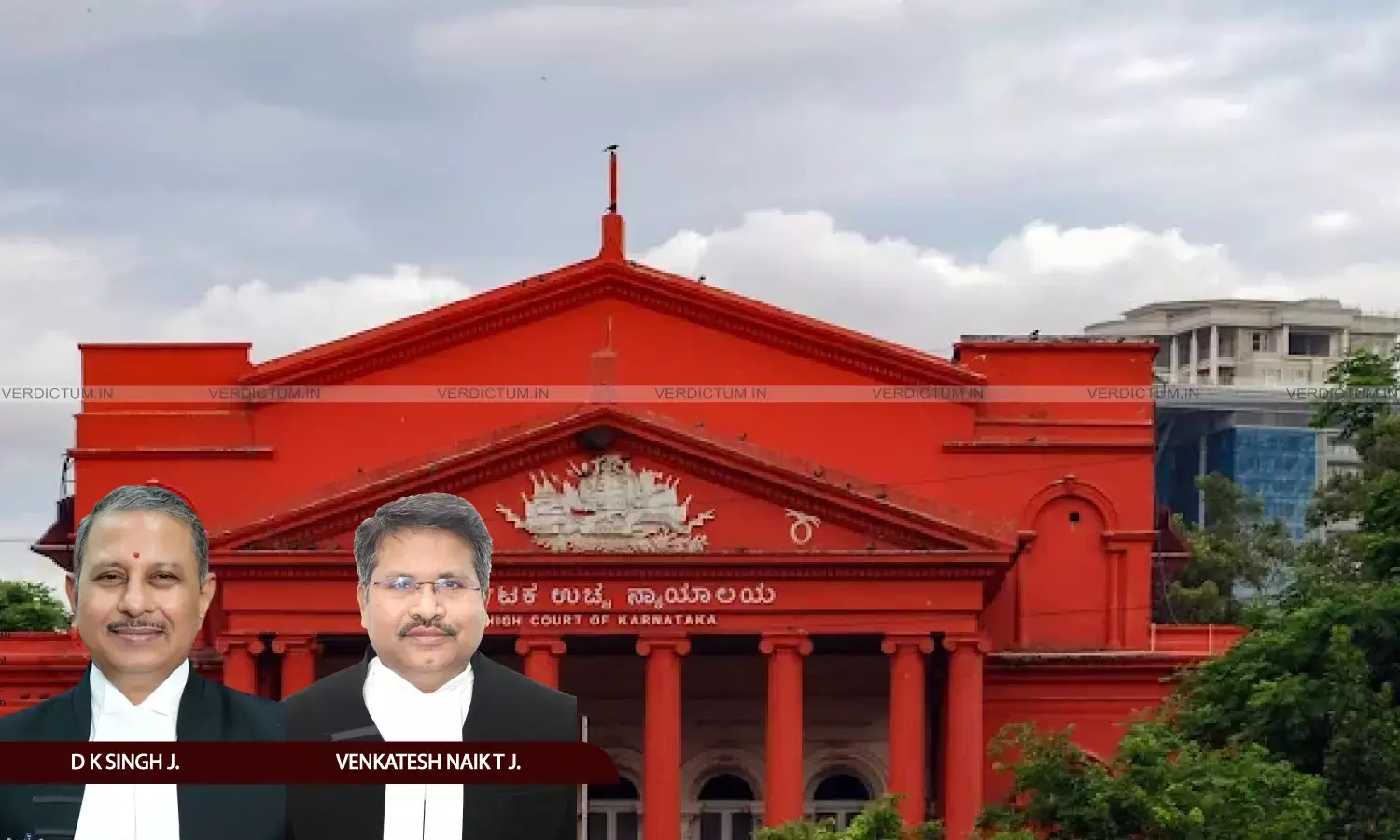PMLA Tribunal Doesn’t Have Power To Remand Matter Back To Adjudicating Authority: Karnataka High Court
The Karnataka High Court was considering an appeal filed under Section 42 of the Prevention of Money Laundering Act, 2002 against the decision of the Appellate Tribunal.

Justice D K Singh, Justice Venkatesh Naik T, Karnataka High Court
The Karnataka High Court has held that the Appellate Tribunal under the Prevention of Money Laundering Act is a creation of the Statute and it does not have the power to remand the matter back to the Adjudicating Authority.
The High Court was considering an appeal filed under Section 42 of the Prevention of Money Laundering Act, 2002 (PML Act) against the decision of the Appellate Tribunal (The Prevention of Money Laundering Act), New Delhi.
The Division Bench of Justice D K Singh and Justice Venkatesh Naik T held, “We are in agreement with Mr. Unnikrishnan, learned counsel for the appellant that in the absence of specific power of remand, the Tribunal could not have remanded the matter back to the Adjudicating Authority. As we hold that the Tribunal does not have the power to remand the matter back to the Adjudicating Authority, we set aside the impugned order passed by the Tribunal and remand the matter back to the Tribunal to render its decision on merit after hearing the parties.”
Central Government Counsel Unnikrishnan M represented the Appellant while Advocate Manasa Sundararaman represented the Respondent.
Factual Background
The Adjudicating Authority, had confirmed the provisional Attachment Order regarding the properties (in the Form of Mutual Funds and Bank Accounts to the tune of Rs.21,38,66,041) of the respondent. The Tribunal had set aside the order of the Adjudicating Authority on the ground that the Adjudicating Authority had not assigned any legally cogent reasons while confirming the provisional order of attachment. The Tribunal had allowed the appeal and remanded the matter back to the Adjudicating Authority for fresh adjudication after considering the reply filed by the respondent to the notice under Section 8(1) of the PML Act.
Arguments
It was the appellant’s case that the PML Tribunal is a creation of the Statute. It was submitted that under sub-section (4) of Section 26 of the PML Act, the Tribunal has power as Appellate Authority to pass order of confirming, modifying or setting aside the order appealed against, as it deems fit, however, there is no such power of remand vested in the Appellate Tribunal.
On the contrary, the respondent submitted that the power of remand is concomitant to the power of setting aside the order of the lower authority vested in the Tribunal.
Reasoning
The Bench was of the view that the Tribunal is a creation of the Statute and it exercises limited power as conferred on it by the Statute.
“There is no inherent power in a Tribunal, inasmuch as the Tribunal is not a regular Court. If the Statute does not confer a power of remand, and there is no inherent power vested in the Tribunal, it cannot remand the matter back to the Adjudicating Authority unless it is specifically provided in the Statute itself”, it stated.
Thus, holding that the Tribunal does not have the power to remand the matter back to the Adjudicating Authority, the Bench allowed the appeal and remanded the matter to the Tribunal to render its decision on merit.
Cause Title: The Joint Director v. M/S. Devas Multimedia Pvt Ltd (Neutral Citation: 2025:KHC:39016-DB)
Appearance
Appellant: Central Government Counsel Unnikrishnan M
Respondent: Advocate Manasa Sundararaman, Advocate Sushma Rao, Goutham. R.V.

